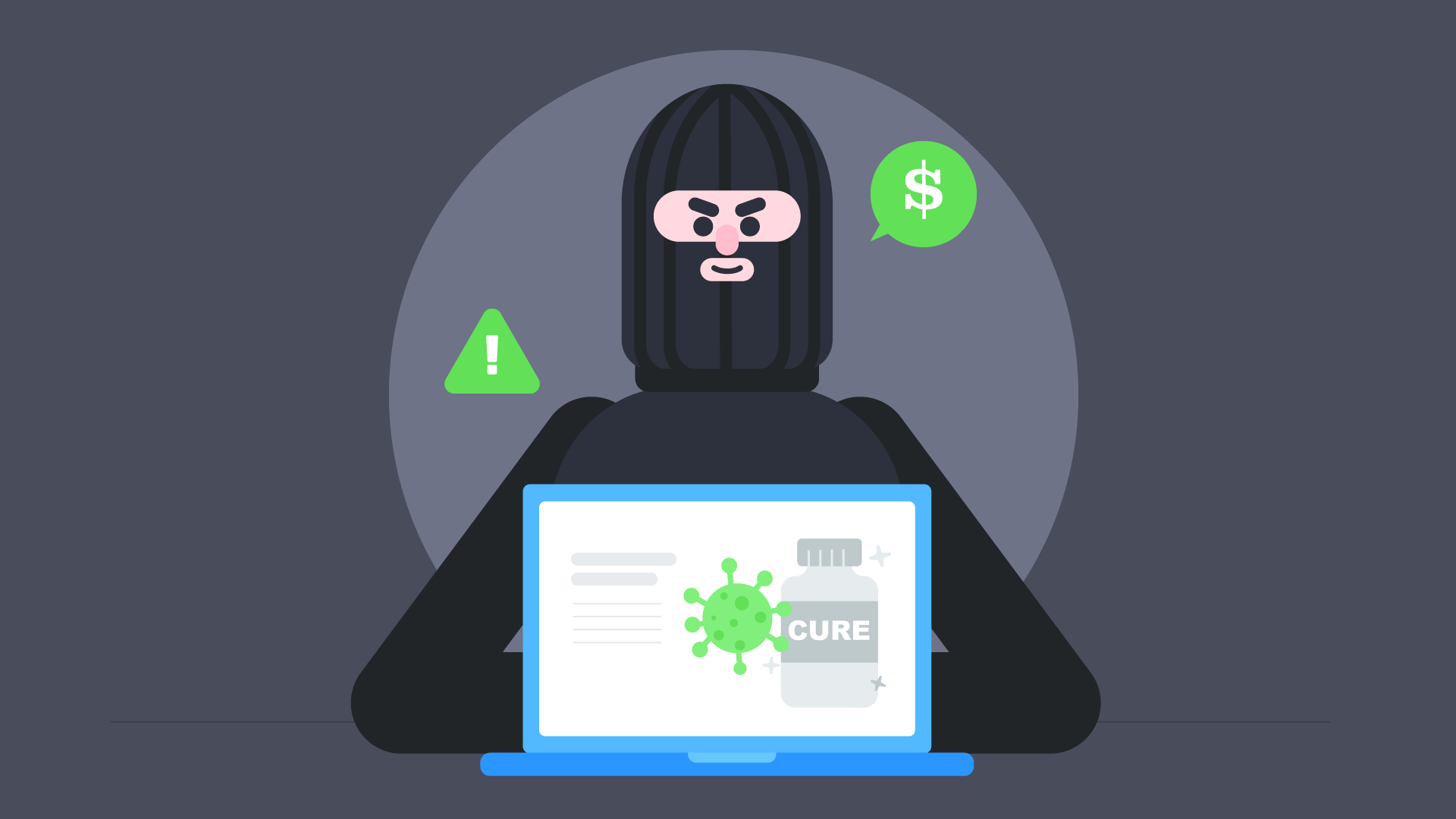The Now -
Avoiding Coronavirus Scams

The Now
Avoiding Coronavirus Scams



/en/thenow/is-technology-making-us-lonely/content/

Coronavirus disease 2019 (also known as COVID-19) has affected public health and our financial well-being. Sadly, scammers are taking advantage. While there are many types of COVID-19 scams, they all have similar goals: to steal your money and sensitive info.
While there are many COVID-19 scams around the world, this lesson will focus on scams in the United States.
Scammers saw the stimulus payments as a big opportunity. There are fake government websites that claim you must apply for the stimulus. You may receive calls, texts, or social media messages from scammers pretending to be government officials. They usually claim you won’t get paid unless you pay a fee or provide personal info.
Many people will receive their stimulus via paper checks. Scammers have also mailed out fake checks, claiming you need to pay a fee to cash it. They may also say you need to pay part of it back.
Over the past few years, several companies suffered large data breaches. These breaches exposed the personal info of millions of people. Scammers can use that info to redirect your stimulus into their bank account.
Ignore any message or website that claims you must apply for the stimulus. All eligible people will automatically receive it via direct deposit or paper check. You also do not have to pay a fee.
Generally, the IRS will not contact you via phone, text, email, or social media. They also won't demand personal info through these methods. If you have questions, contact the IRS directly.
Those most at risk for the redirected stimulus scam are non-filers. These are people that did not file taxes in 2018 or 2019. The IRS website lets non-filers provide a bank account to receive their stimulus. However, the questions used to confirm their identity can be answered using leaked personal info.
We recommend using Get My Payment to check the status of your stimulus. This tool lets you see when and where it was sent. If there’s a problem, notify the IRS.
The pandemic may go on for some time, which means there may be another stimulus in the future. For official stimulus info, check irs.gov or ftc.gov.
Many scams involve medical and testing claims. Watch out for texts, emails, and social media messages that demand you get tested for COVID-19. They usually ask you to click a link or download an attachment that puts malware on your device.
Some scams offer cures and treatments for COVID-19. Others offer protective equipment and at-home testing kits. They usually say you must act fast and supplies are limited.
You may get a text that claims you’ve been near people with COVID-19. If you interact with any links, you could infect your device with malware. There are also several fake COVID-19 apps that put ransomware on your device.
Ignore messages that claim you can get a cure or treatment if you respond.
The best way to test for COVID-19 is through a medical professional. However, the FDA approved an at-home testing kit called Pixel. It lets you collect your sample at home and ship it to a lab for your results. Currently, the only way to purchase it is through the Pixel website.
Although they are still in the prototype phase, there are safe proximity alert services. Opendemic is available for your web browser, while Private Kit: Safe Paths is available for iOS and Android. Apple and Google are also developing their own proximity alerts for their mobile devices. Outside of alerts from these services, ignore messages saying you’ve been exposed to COVID-19.
Overall, beware any message that pressures you to act fast. For official medical news, check CDC.gov or coronavirus.gov.

Scammers are also going after the rest of your money. For instance, you may get a message saying that a loved one is in the hospital, but they can’t afford their bills. It will claim you need to pay up, or your loved one could be denied care.
Scammers are even pretending to be charities. You may get a message asking for a donation to help a worthy cause. These messages often ask you to pay in the form of gift cards or prepaid debit cards.
Ignore messages regarding a loved one’s hospital bills. Instead, contact the hospital directly. If the scam mentions a specific person, try contacting that person or their immediate family.
Don’t respond directly to charity messages either. If you want to donate, contact that charity yourself. If you're worried that a charity is fake, use charitynavigator.org to learn more.
Identity theft scams are also on the rise. A message might say COVID-19 has affected your Social Security or Medicare benefits. It claims if you don’t pay a fee or provide personal info, you could lose benefits or be arrested.
Some scammers claim to work for real companies, offering free food, supplies, or store discounts. When you try to sign up for those offers, they steal your personal info.
With unemployment going up, scammers are posting fake job offers. Some of them even guarantee a job. However, many of them steal your personal info once you apply.
Scammers are even targeting entire companies. They create fake company emails and hide malware within the message. Their goal is to steal employees’ login info and break into the company’s network.
Don't respond to messages regarding your benefits. Instead, contact Social Security or Medicare directly. Remember that these agencies will never threaten to arrest you. They also don't demand immediate payment or request personal info via text, email, or social media.
If you get offers for company deals, check online to see if those deals are real. Companies usually promote deals on their website and social media pages, so they shouldn't be hard to find.
Carefully review work emails with links or attachments, especially if you don’t recognize the sender. When in doubt, ask your supervisor if an email is real. To learn more about phishing, check out our lesson Avoiding Spam and Phishing.
Beware any "guaranteed" job offer, because it’s likely fake. Also be wary of any offer that has multiple spelling and grammar errors. If you're unsure if an offer is fake, search for the employer or staffing agency online, along with the terms ‘fraud’ or ‘scam.’ If you don’t find any problems, try using their official website to apply.
Sadly, we don't know how long this pandemic will continue. In the meantime, take care to protect your finances and identity, and stay safe.

